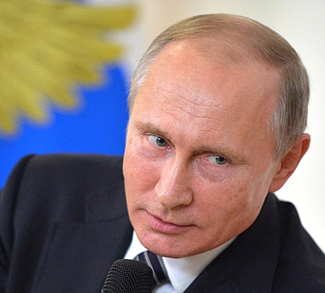President Volodymyr Zelensky, who came to power last year with Ukraine’s largest ever majority and a mandate to root out endemic corruption, risks plunging the country into a constitutional crisis after urging parliament to remove judges in the country’s top court following a string of decisions that undermine the country’s anti-corruption efforts, which are vital for international financial backing.
Ukraine’s leadership is concerned that its critical IMF loan agreements and a European Union visa-free travel provision could be put at risk by the court’s recent decision to neuter the National Agency on Corruption Prevention (NACP) by cancelling its verification of asset declarations of public officials, a major anti-graft reform, as well as several other powers. Four of the court’s judges are being investigated by the agency over the contents of their declarations.
This decision by the constitutional court, together with its recent curbing of presidential authority over the National Anti-corruption Bureau of Ukraine (NABU) and ruling that its head’s appointment was unconstitutional, is a serious setback for anti-corruption reformers in Ukraine and will once more raise questions among the country’s western backers about its ability to tackle the national scourge.
But Zelensky, whose attempts at reform have been frustrated by those opposed to ties with the EU and IMF, is walking a political tightrope in attempting to overhaul the constitutional court and reverse some of its recent controversial decisions. The country’s international backers may sympathise with his anger at the court’s apparent attempt to sabotage reforms, but the president’s decision to hack away at Ukraine’s constitution would also be a cause for concern.
In Ukraine, the political temperature is running high after Zelensky introduced a bill into parliament late last month which would disband the constitutional court, see the selection of new judges and cancel rulings relating to the NAPC. It was believed this would lead to a constitutional crisis because neither the president nor parliament have the powers to remove the court’s judges.
However, recent comments by Fedir Venislavsky, Zelensky’s envoy to the constitutional court, indicated that there may be a precedent for the president to intervene in the court’s process in the event of a national crisis, in order to preserve national security and public order. The outcome of this debate and the success of the bill is still pending the Rada’s approval.
The head of Ukraine’s constitutional court has said the proposed legislation “bears the signs of a constitutional coup” and the creation of an “obedient” court. The former premier Yulia Tymoshenko was more forthright, describing it as a “coup d’etat” aimed at concentrating more power in the president’s hands. Other opposition politicians have said they will vote against the bill.
Zelensky, who in an FT editorial said the recent constitutional court decisions were “part of a systematic effort to undermine the rule of law,” is reported to have warned parliament that the country could be thrown into a state of “bloody chaos” or see the end of a “system of transparent rules and agreements” if anti-corruption reforms are not restored. Moreover, he has suggested that he may even dissolve parliament.
The president looks to be determined to confront the court, not least because its actions are such a threat to his authority as a reformer. This comes at a time when he clearly needs to reaffirm his credentials in the face of declining popularity. His approval ratings have fallen sharply since his triumph last year with many Ukrainians losing confidence in his ability to battle endemic corruption, and his party fared poorly in recent regional elections.
Zelensky has not helped his cause with a series of decisions seemingly inconsistent with his reformist, pro-western credo, such as sacking most of his largely reform-minded government and a highly regarded prosecutor-general earlier this year. Amid his sagging political fortunes and the distractive cover of the coronavirus crisis, Zelensky’s anti-reform opponents, many of them linked to oligarchs and Russian interest groups, appear to have mounted a rearguard action, petitioning the constitutional court to reverse anti-corruption initiatives.
Therein lies the biggest obstacle for Zelensky. One of the symptoms of Ukraine’s endemic corruption is the judiciary itself, which for a long time has been the protectorate of political patronage in the country. Judicial resistance to corruption prosecutions and limited judicial reform stems from the influence wielded by oligarchs and other wealthy individuals, who wish to retain their position in the status quo and who have systematically suborned members of the judiciary.
Legislation passed last year provides a more transparent process for selecting and removing judges, but critics argue that some of its provisions pose a possible threat to their independence and judicial reform, underlining how hard it is to overcome the country’s vested interests. Right now, the constitutional court is in Zelensky’s crosshairs, but in truth it is just part of a deeply flawed judicial system that is in urgent need of repair.
In his FT comment, Zelensky said that of particular concern was the constitutional court’s consideration of a number of further petitions from pro-Russian and oligarch-linked politicians aimed at cancelling recent major reforms, in areas such as land, banking and the country’s anti-corruption court. Clearly, the president has to act. But even if he risks the wrath of parliament and alarms some international backers by defenestrating constitutional court judges, as bold a move as it is, it does not address the elephant in the room – a largely untamed oligarchy.
The views expressed in this article are those of the authors alone and do not necessarily reflect those of Geopoliticalmonitor.com or any institutions with which the authors are associated.
Yigal Chazan is head of content and Nathan Andrews an analyst at Alaco, a London-based business intelligence consultancy.




